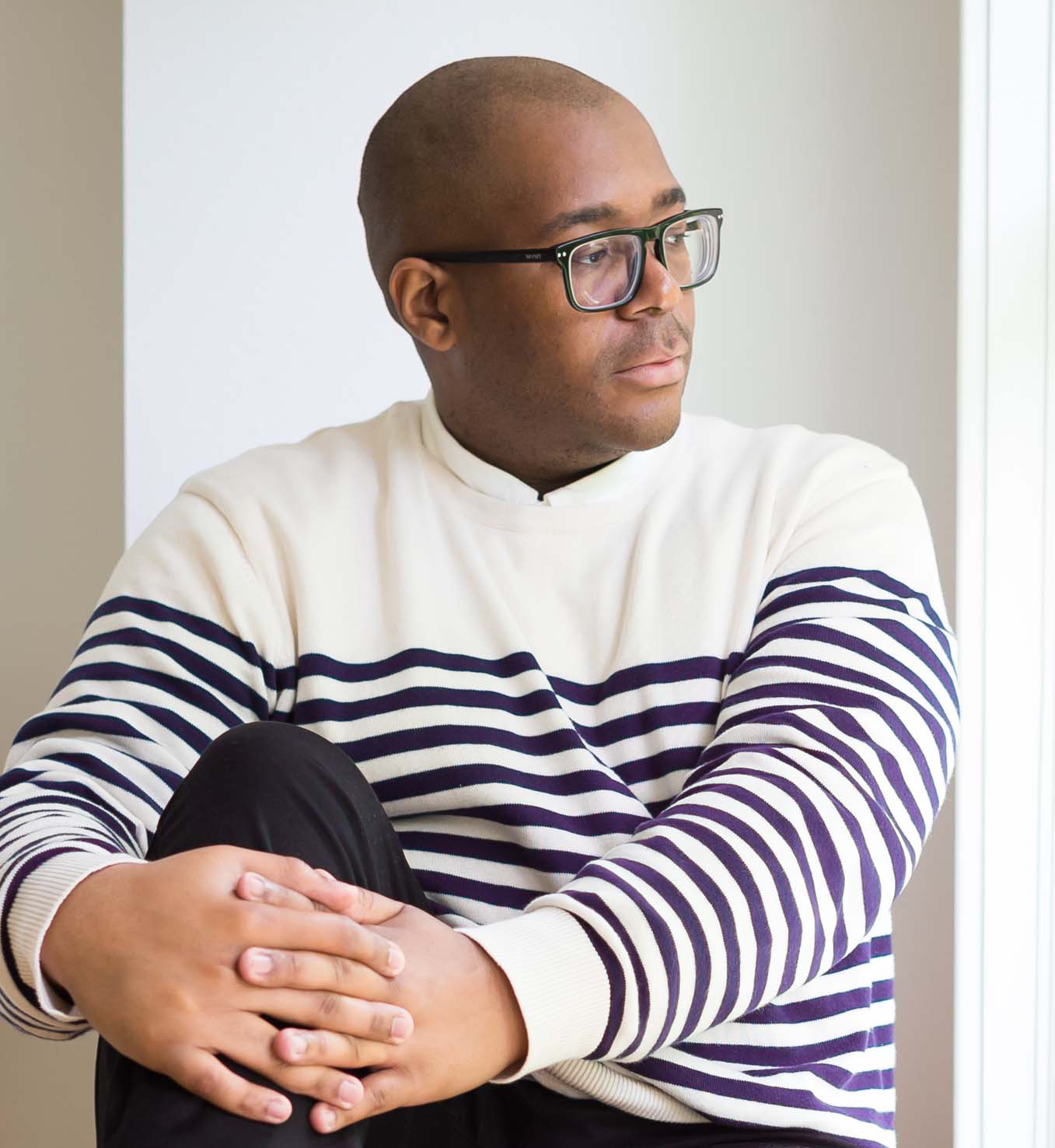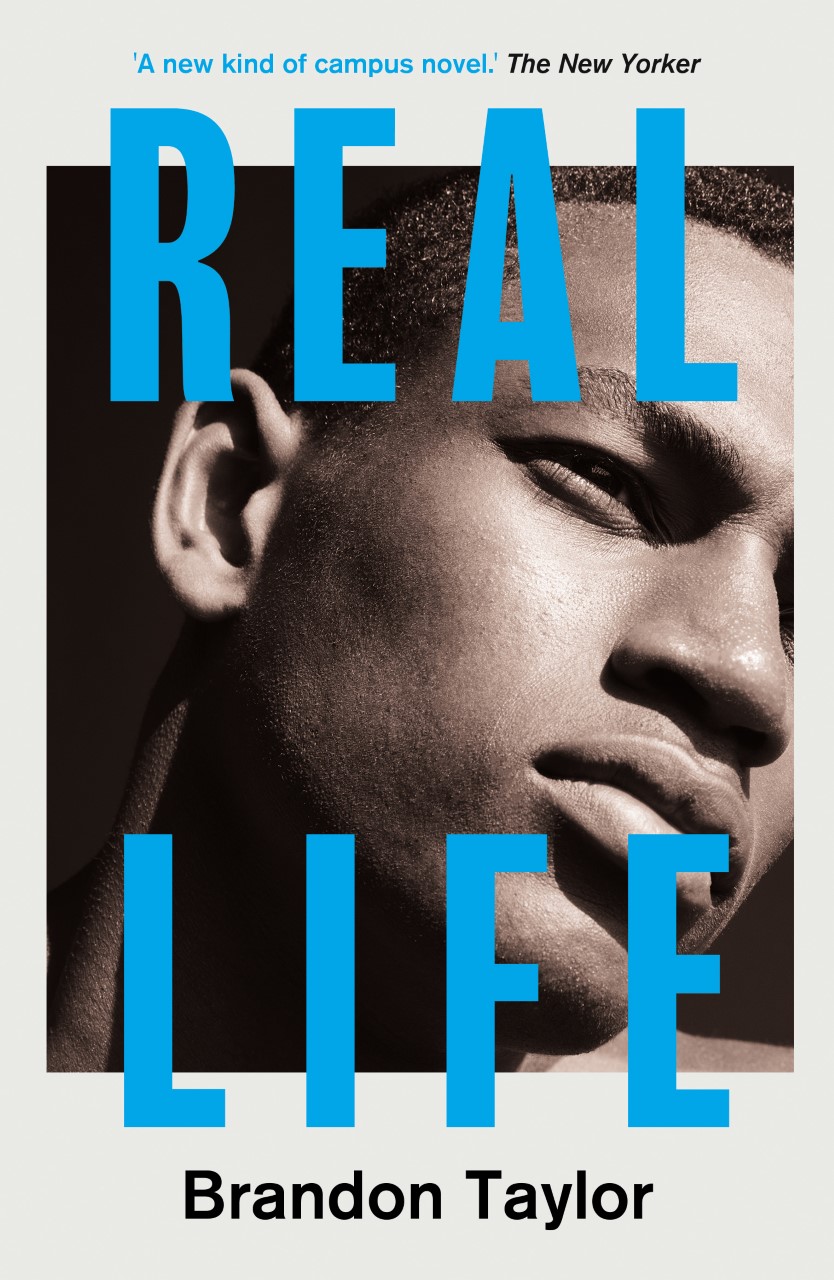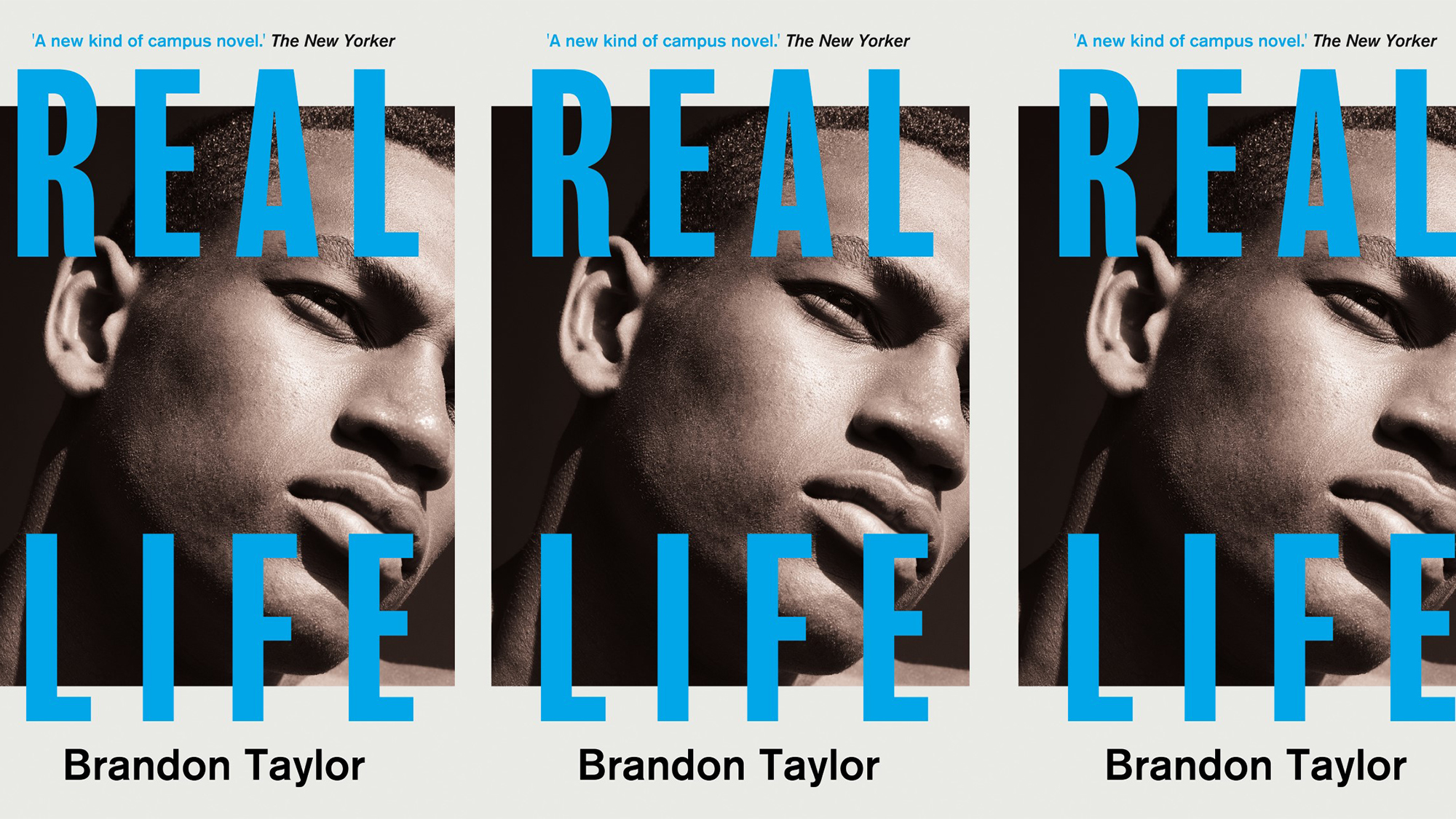A few weeks ago, according to Google, Brandon Taylor wasn’t an author at all. Instead, he was a 74-year-old professor emeritus in history of art at Southampton University, and a tutor in the history and theory of art at the University of Oxford. Not quite the profile you’d expect from the author of one of the most exquisitely crafted contemporary novels to emerge this year, a 326-page meditation on Black queerness and queer Blackness, the hostility of the academic campus, and the sticky business of intermingled and interracial relationships — romantic, platonic, professional, and otherwise.
It’s a particular surprise when this description appears on the search engine paired with a crisp headshot of the young writer: poised and professional in a casual striped long-sleeve, and not a wrinkle in sight. “The Google apparatus has not quite sorted it out, no,” says Brandon, chuckling over Zoom. “So, I am in my 30s. I turned 31 this June.”
Now, however, the algorithm has righted itself, a likely result of the debut author’s 2020 Booker prize nomination. Brandon’s highly-acclaimed novel, titled Real Life, follows a young biochemist named Wallace over the span of a summer weekend in his life. “I always say that it’s a novel about a quarter life crisis,” says Brandon, “when you wake up and realise that you’ve made a series of choices to get ahead and to get to a certain place in your life; what happens when you start to feel like it’s not enough anymore, that the life you’ve built for yourself as a kind of escape route from your past is actually not sufficient to your happiness.” Speaking to us a few weeks before his Booker nomination (let the record show that we were on the hype first), Brandon tells us about how he came to write Real Life, his enduring love for Call Me By Your Name, and his best advice for emerging writers.
Were you surprised at the overwhelmingly positive critical response the book received?
Absolutely. Something that I kept telling my agent was, “I think five people are going to read this book, and I’m totally okay with that.” It’s about scientists, and it’s not the most universal thing in the world, or so I thought. It turned out that a great many people could relate to the things that the novel touches on. And that was just really gratifying and really moving. It’s been really special to see the book find its people.
You told The New York Times that, “Wallace is an amalgam of [your] own experiences as well as those of other queer black people on college campuses”. Can you tell me a bit about how you went about collecting those?
Part of it is that I once was a queer black man on a college campus, and my closest friends were other queer black people, and we would have these hour-long conversations about the culture — the broader American culture — not seeing us, and not seeing our stories reflected in books, or in TV, or film.
When I was writing my very, very first short story, I had a really bad writer’s block, so my friends took me to a bookstore because that was their solution for everything. They would sort of take me to a bookstore and get me a book — they knew it was my happy place. We kept looking for books about gay people. And every time I’d look one up on my friend’s cell phone and go to the front counter and ask like where it was shelved, they would tell me that they didn’t have it. And eventually the cashier was like, “We don’t sell that here. We’re a family store.” And it got me so fired up that my one of my friends sort of took me home. They thought the mission had failed. But I sat down and I wrote a short story in like two hours. I was like, “I want to write these stories, no one’s going to tell me that my life is not a sufficient subject of art.”

So it wasn’t anywhere near as formal as you sitting down with subjects and a dictaphone and recording?
No, no, it really just came from a lot of the conversations I had with my friends and with other queer black people across social media that I was engaging with. People act like we don’t exist in certain spaces. If you were to pick up a campus novel, you’re lucky if there’s like a black person in it, let alone a queer black person. But I think it’s often that way with your first book — you’ve been doing the research all along without realising.
What would you say were your literary influences then? Were there any?
André Aciman is always a literary influence of mine — he’s the one who made me switch from poetry to prose. Call Me By Your Name is like my favourite novel ever. I read it as a very lonely, impressionable 18-year-old who had never read a book about a queer person before. So, he’s one of my heart writers. Like one of those writers that you come to again and again and I’ve read everything he’s ever written, like four or five times.
Without spoiling anything too much, can you tell me a bit about your favourite relationships in the novel?
I think one of my favourite relationships in the novel is probably Wallace and his lab mate Bridgette. In some ways, Wallace views her as the one uncomplicated relationship he has because she doesn’t expect anything from him. But really even that relationship is complicated, and that the sense of ease there is perhaps a result of his own privilege blinding him from the ways that he himself exists in a hierarchical way.
And I think I also have a soft spot for Wallace and his friend Cole. They play tennis together and Cole is such a good and kind person who just wants to be loved. And Wallace is just like, “You poor boy, the world is going to eat you up.”

Was the experience of writing the book therapeutic for you at all?
It was in ways. I felt that by moving some of my experiences — and some of the things that I had heard from other people — into fiction, I could kind of revisit and recast them. I could try to see the situations from every side of the table and not just from my own sense of being wronged. It didn’t feel vengeful. Instead, it felt like a prolonged exercise of having perspective and empathy and sympathy; really trying to understand, even when people were behaving poorly toward me or others, what had brought them to that place in their life. Because they weren’t just a villain beamed in from space to be evil. These are people with long, complicated histories that have allowed them to develop these toxic attitudes. And I was really interested in that. So the book was therapeutic in that it was an opportunity to really try to imagine the inside of someone who was very much not me.
What’s your best advice for young writers?
You should write first and foremost for yourself, don’t write for a sense of audience or reach or whatever. Try to please yourself first. And practice! I know that seems kind of silly, but it’s important to develop an appetite and a capacity for practicing and honing your craft; being a mess on the page and trying to figure out what it is you want to do. It doesn’t have to be perfect when it’s coming out. The key to a first draft is a done draft. Practice, practice, practice, but especially practice finishing things.


